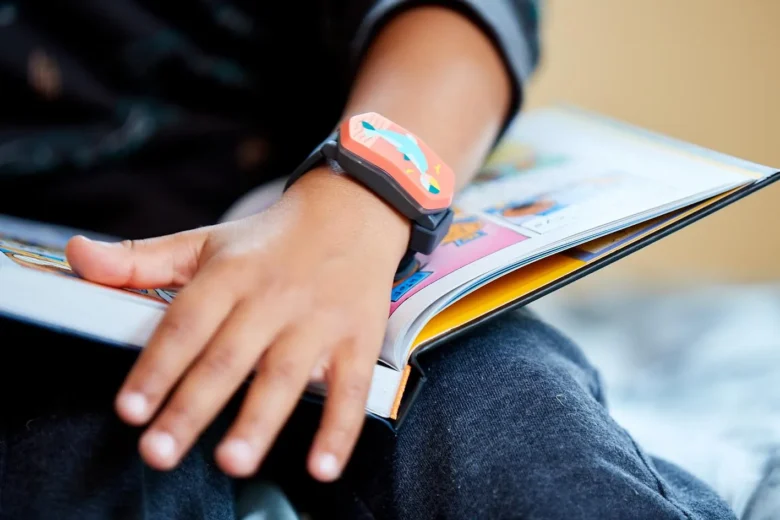In recent years, the use of children’s health-tracking devices has become a big trend among parents. These devices add an extra layer of safety and provide parents with information about their children’s physical and activity-related health. These gadgets include everything from activity trackers to more specialized tools to monitor certain health conditions. Using this technology in everyday life can help detect health problems early, make it easier to care for long-term health problems, and give parents insight into their child’s overall health.
The Role of Health Monitoring Devices in Childcare
Some of the health parameters that health monitoring devices track include heart rate, sleep quality, activity level, and even location. They are especially useful for children with asthma, diabetes, epilepsy, or other health problems that require constant attention. By providing parents with stable, real-time feedback, these devices can make them aware of potential health problems before they become more serious, so doctors can act quickly.
Types of Health Monitoring Devices for Kids
1. Activity Trackers
Primarily used to track physical activity, these gadgets are a great way to teach kids about healthy living early on. They usually track steps, distance traveled and calories burned. They may also check your child’s sleep patterns to make sure they get enough rest.
2. Wearable Health Monitors
Some high-tech watches and bands do more than just track exercise. They also pay close attention to things like heart rate, skin temperature, and even blood oxygen levels. Some also have built-in GPS tracking, so parents can keep an eye on their child’s location for safety reasons.
3. Advanced monitoring system
Some devices can track and store information for parents of children with certain health conditions. For example, peak flow meters can be added to digital monitoring systems to help treat asthma, and continuous glucose monitoring systems can provide parents with real-time information about their children’s blood sugar levels.
4. Sleep tracker
These gadgets help track your child’s sleep duration and quality. More advanced models can focus on your sleep patterns, movements while sleeping, and overall sleep quality. This can help you detect sleep disorders early.
5. Environmental sensors
These monitors help detect things in a child’s environment that could be harmful to their health. For example, air quality sensors can detect allergens or irritants that may be present in children’s areas. This is very important for children with breathing problems such as asthma.
Benefits of Health Monitoring Devices
Early notification of health problems: Continuous monitoring can help detect early warning signs of health problems so that immediate medical attention can be provided.
Peace of mind: For parents, access to real-time information about their child’s health can provide peace of mind, especially if the child has a long-term illness.
Help children develop healthy habits: Tracking devices can encourage children to be more active and help them develop healthy habits from an early age.
Healthcare Provider Data: The data collected can help healthcare providers identify problem areas, understand how treatments work, and make changes to patients’ plans if necessary.
Things to consider when Choosing Device
Age appropriateness: Devices should be easy for children to use and collect age-appropriate information.
Ease of use: Both children and parents should be able to do this without any problems.
Privacy and security: Because these gadgets record personal health information, it is important to choose gadgets that protect your data and privacy.
Accuracy: The gadget should be accurate and reliable in the medical field.
Conclusion
Child health tracking devices are changing the way parents care for their children’s health, providing them with tools that not only track health data but also provide parents with previously inaccessible information. As technology advances, these devices have enormous potential to improve healthcare for children. They can be better integrated into daily health management, which will usher in a new era of educated and proactive parenting.
FAQs
1. What are some gadgets to monitor children’s health?
Child health tracking devices are gadgets that focus on the health and well-being of different parts of a child. These gadgets can monitor your heart rate, sleep patterns, physical activity, and other health-related factors. Often it is wearable technology, such as fitness trackers or smart watches.
2. Why should I consider purchasing a health monitoring device for my child?
You can use health monitoring devices to keep an eye on your child’s overall health, activity level, and sleep quality. It is especially useful for people dealing with long-term conditions such as diabetes or asthma, as it gives you real-time information about possible health problems.
3. Can I use this without a smartphone?
Most health-tracking devices can connect to apps on your phone to provide you with more information and analysis. However some gadgets may be able to work independently or connect to a computer for synchronization. Check the device specifications to see which connection is required.
4. Can children use these devices without getting hurt?
For most health monitoring devices designed for children, safety and protection are top priorities. However, it is important to only buy devices from reputable companies that adhere to data protection rules and ensure that they are safe and comfortable for children.
5. How do you choose the best device to monitor your child’s health?
Think about your child’s needs and what you want to look for when choosing a gadget. You should look for gadgets that are appropriate for your child’s age, are easy to use, and have strong privacy and security features. If you need more advice, it can also be helpful to read reviews and ask your child’s doctor for advice.
6. Can health monitoring devices replace a visit to the pediatrician?
No, these devices may be used outside of normal medical visits to provide additional information that can assist in health management. They should not be used as a substitute for professional medical attention, evaluation, or care.



